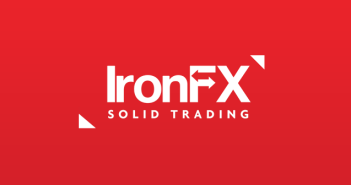Choosing a Broker
There is a big number of forex brokers in the market, some regulated and other unregulated, which makes it difficult for a new trader to make the correct choice. Choosing a Forex broker requires research through various channels, online and offline. There are few important factors that you should cosider before choosing a forex broker.
Home > Library > Traders Guide > Choosing a Forex Broker
Traders
Guide
2. Account Details
Each forex broker has different account offerings, including:
3. Currency Pairs Offered
While there are a great deal of currencies available for trading, only a few get the majority of the attention, and therefore, trade with the greatest liquidity. The "majors" are the U.S. dollar/Japanese yen (USD/JPY), the Euro/U.S. dollar (EUR/USD), the U.S. dollar/Swiss franc (USD/CHF) and the British pound/U.S. dollar (GBP/USD). A broker may offer a huge selection of forex pairs, but what is most important is that they offer the pair(s) in which the trader or investor is interested. (For more information on the major pairs, see our tutorial on Forex Currencies.)
4. Customer Service
Forex trading occurs 24 hours a day, so a broker's customer support should be available at any time. Another consideration is the ease with which one can speak with a live person, rather than a time consuming, and often frustrating, auto attendant. When considering a broker, a quick call can give you an idea of the type of customer service they provide, wait times and the representative's ability to concisely answer questions regarding spreads, leverage, regulations and company details. These details include how long they have been a forex broker and the size of their trade volume (larger brokers generally have access to better prices and execution).
5. Trading Platform
The trading platform is the investor's portal to the markets. As such, traders should make sure the platform and any software is easy to use, visually pleasing, has a variety of technical and/or fundamental analysis tools, and that trades can be entered and exited with ease.
This last point is especially important: A well-designed trading platform will have clear ‘buy' and ‘sell' buttons, and some even have a "panic" button that closes all open positions. A poorly designed interface, on the other hand, could lead to costly order entry mistakes, such as accidentally adding to a position rather than closing it, or going short when you meant to go long.
Other considerations include customization options, order entry types, automated trading options, strategy builders, backtesting and trading alerts. Most brokers offer free demo accounts so that traders can try out the trading platform prior to opening and funding an account.
The Bottom LineIf you have confidence in your forex broker, you will be able to devote more time and attention to analysis and developing forex strategies. A bit of research before committing to a broker goes a long way, and can increase an investor's odds of success in the competitive forex market. (For related reading, also take a look at Top 10 Rules For Successful Trading.)
Make sure the broker you choose is regulated as this is important for the safety of your funds. So if you want your funds and investments to be safe, make sure you pick a regulated broker. There are plenty of trustworthy forex brokers for you to choose from. Trade Safe!
1. Regulated or Unregulated Forex Broker?
Ease of Deposits and Withdrawals
Each forex broker has specific account withdrawal and funding policies. Brokers may allow account holders to fund accounts online with a credit card, via ACH payment or via PayPal, or with a wire transfer, bank check or business or personal check. Withdrawals can typically be made by check or by wire transfer. The broker may charge a fee for either service
Initial Deposit
Most forex accounts can be funded with a very small initial deposit, even as low as $50. With leverage, of course, the buying power is much greater than the minimum deposit, which is one reason forex trading is attractive to new traders and investors. Many brokers offer standard, mini and micro accountswith varying initial deposit requirements.
Commissions and Spreads
A broker makes money through commissions and spreads. A broker that uses commissions may charge a specified percentage of the spread, the difference between the bid and ask price of the forex pair. However, many brokers advertise that they charge no commissions, and instead make their money with wider spreads.
Leverage and Margin
Forex participants have access to a variety of leverage amounts depending on the broker, such as 50:1 or 200:1. Leverage is a loan extended to margin account holders by their brokers.











